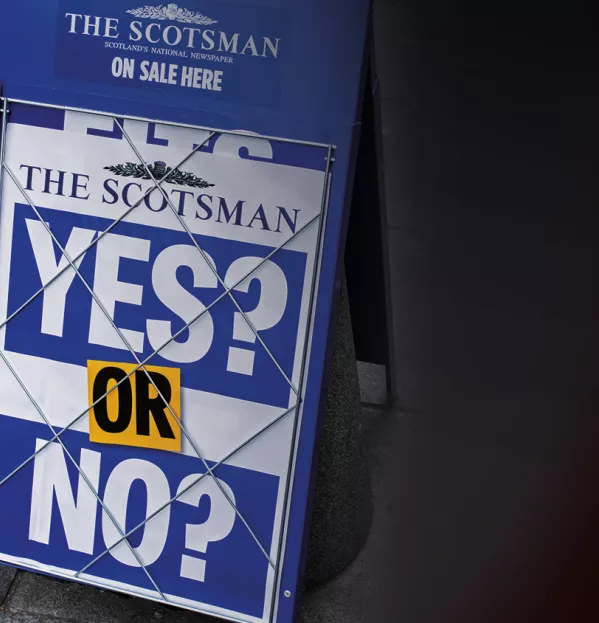Before the 2014 Scottish independence referendum, many teachers were asked to avoid expressing their voting intentions in the lead-up to 18 September.
Generally, that was the correct stance to take. However, the imposition of this edict led many to avoid discussing what was the most important day in our recent political history, missing an opportunity to teach our young people about debate in a healthy democracy.
Whether we’re about to experience a rerun or not - strap in, folks, it looks like we may be in for the long haul - teachers have an opportunity to do it better this time.
Our public discourse shames us; our politicians, at times, shame us with their playschool antics. Our young people need role models. They also need to know the difference between fact and opinion in a functioning democracy. Recent global events have emphasised the importance of understanding the issues, of understanding why it is not enough to merely have an opinion based on gut instinct.
The level of considered debate - or the lack of it - has emphasised the importance of why facts trump fiction. If we have to go through another era of political “awakening”, then surely we must use the opportunity to develop that essential awareness of issues over the polarised taking of sides.
Our curriculum is set up for that very purpose: it could be the era in which we finally embed the true virtues of Curriculum for Excellence.
‘Successful learners’
We all need to be “successful learners”, listening to the opposing arguments, reading all the facts, preparing for our future. We all need to be “confident individuals”, able to debate rationally with those who perhaps don’t see things our way. We all need to be “responsible citizens”, aware of our place in Scotland, regardless of the eventuality - and even if it does not turn out the way we would like.
And we must all be “effective contributors” to a Scotland in which we will all live, taking our place in a strong and healthy democracy, where everybody’s opinions are valued and no one is silenced.
I wrote at the time that the recent US presidential election was a referendum on decency; we saw how that turned out.
As teachers, and as adults, we need to model that decency for our young people. So we don’t mock opposing views; we don’t humiliate those we disagree with, with pithy social media jokes; we don’t call those we oppose “traitors”. We may have to rise above our politicians on that. But whatever happens, remember that we all have to live with the consequences of what Brexit and a possible Indyref 2 might bring. What kind of Scotland do you want?
Kenny Pieper is a teacher of English in Scotland
